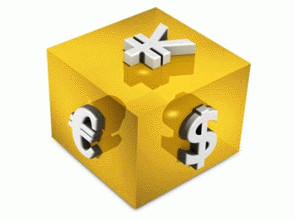
The NZDUSD is currently trading at 0.6671
The Kiwi was softer against its major competitors overnight, but steady against the GBP, after a substantial move higher the night before.
The US Conference Board Consumer Confidence Index, which had increased moderately in January, declined in February. The Index now stands at 92.2, down from 97.8 in January. The Present Situation Index declined from 116.6 to 112.1, while the Expectations Index decreased from 85.3 to 78.9 in February.
US Existing-home sales crept forward in January to the highest annual rate in six months, and subpar supply levels propelled price growth to the fastest increase since last April, according to the National Association of Realtors.
US Richmond Manufacturing Index slowed in February. The composite index softened six points to a reading of -4. New Orders declined and Manufacturing Employment grew at the same pace as a month ago. The index remained at 9
German business confidence fell for a third month in a sign that companies in Europe’s largest economy are growing more concerned as slowing global growth roils financial markets. The Ifo institute’s business climate index dropped to 105.7 in February from 107.3 in January.
German Final GDP for Q4 came in at 0.3% as expected slightly lower than the 0.4% from the previous quarter.
Global equity markets are broadly lower: Dow -0.99%, S&P 500 -0.96%, FTSE -1.25%, DAX -1.64%, CAC -1.40%, Nikkei -0.37%, Shanghai -0.81%.
Gold prices are up 1.1% currently trading at $1223 an ounce. WTI Crude Oil is down 1.3% currently trading at $31.48 a barrel.
Current indicative rates:
NZDUSD 0.6571 -0.6%
NZDEUR 0.6054 -0.7%
NZDGBP 0.4746 0.0%
NZDJPY 74.66 -1.
NZDAUD 0.9246 -0.4%
NZDCAD 0.9185 -0.1%
To subscribe to our free daily Currency Rate Sheet and News email, enter your email address here.
Dan Bell is the senior currency strategist at HiFX in Auckland. You can contact him here »
Daily exchange rates
Select chart tabs
1 Comments
It took about 250 years to blow the biggest bubbles in all of human history, with most of the action taking place since the 1980s.
Now central banks and governments are attempting to prevent the bubbles bursting, and will have as much success via negative interest rates and money-printing as Hitler had in preventing the Russian advance after Stalingrad.
The US and European economies were hollowed decades ago,, much as that of NZ was hollowed out from 1984 on, and it has only been manipulation, fraud, fracking, warmongering and weapons sales that have kept the show on the road since the year 2000.
Presumably it must all come to an end in a scramble to acquire and control resources via WW3, with overpopulation, energy depletion and Abrupt Climate Change contributing to the misery.
'Weapons imports by Saudi Arabia and Qatar have rocketed by over 275 percent over the past four years, a new report found on Monday.
Between 2011 and 2015, Gulf states were the most significant market for sales by the United States, the world’s biggest arms exporter, the Stockholm International Peace Research Institute (SIPRI) found.
In a new report assessing worldwide trends in arms sales over the last four years, SIPRI found that increased demand from the Middle East had led a 14 per cent global rise in arms transfers.
The increase was not marked universally – arms imports to European states fell by 41 per cent between 2011 and 2015.
By contrast, arms imports by Middle Eastern states grew by 61 per cent – the largest regional increase – during a period marked by massive internal unrest as well as the rise of Islamic State.
At the forefront of this growth were Saudi Arabia – now the world’s largest importer of weapons – and Qatar.
Arms purchases by Qatar between 2011 and 2015 jumped by 279 per cent, while Saudi Arabia’s increased by 275 per cent over the same period compared to the previous four years.
Despite increased competition from China – whose arms exports increased by 88 per cent – the US has remained the world’s largest arms dealer.'
http://www.zerohedge.com/news/2016-02-23/arms-sales-saudi-arabia-and-qa…


We welcome your comments below. If you are not already registered, please register to comment
Remember we welcome robust, respectful and insightful debate. We don't welcome abusive or defamatory comments and will de-register those repeatedly making such comments. Our current comment policy is here.